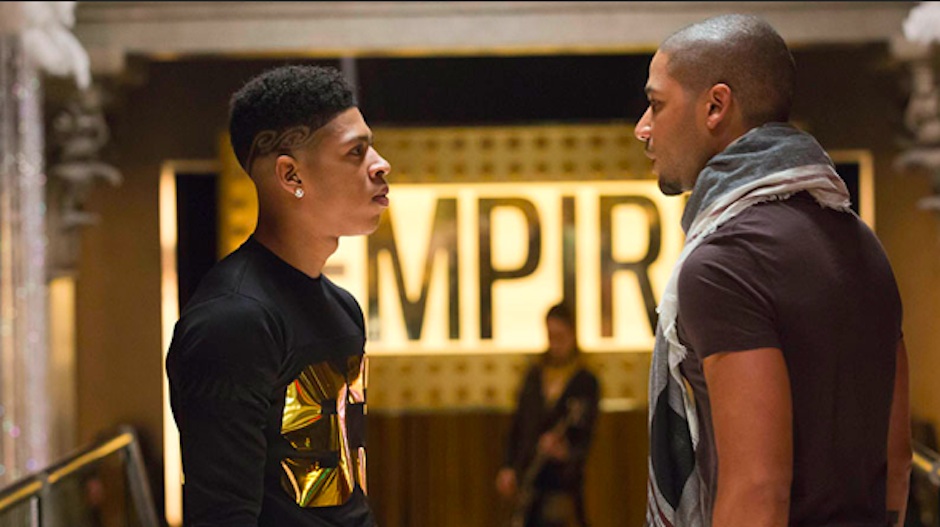OPINION: We Need More Diverse Representations of LGBTQ Life on TV

Jussie & Yazz (Jamal and Hakeem Lyon) from the hit FOX show Empire
Next week, Fox’s megahit show Empire returns, and my black gay friends are more excited for its arrival than they are warmer Philly weather. “It’s gonna be the only time we see one of us not in drag,” one of them said. “It’s one of the few times I like how we’re portrayed.”
I tried to find a counter to that point, but this was one of the first times I had to sit and contemplate. How many black and Latino LGBTQ characters are there on television? According to this recent GLADD character list, not many. Of all the major channels on both broadcast and cable, there are fewer than 20 roles — and most are not major characters.
This is disappointing — even beyond the obvious point that it doesn’t reflect the true diversity of the LGBTQ community — because many straight people, including those of color, just don’t believe that diverse LGBTQ people even exist. There have been many conspiracy theories around this, some suggesting that when the media does highlight possibly gay black characters it does so to emasculate them. But some of the suspicion is rooted in cultural microagressions of a homophobia that doesn’t want to acknowledge that LGBTQ people of color exist at all.
Socially, there has been a whitewashing of LGBTQ life in media that makes it difficult for others to believe that those who are of color can lead normal lives. It’s almost upsetting to hardly find myself on television depicted in a healthy dating relationship with a supportive family behind me.
This isn’t to say that I’m calling for more Cosby Show-esque vibes to cloud over some of important social issues raised elsewhere. But for every Modern Family, LGBTQ of color doesn’t have a match. Empire, is gritty and a step in the right direction — but it’s unfortunately bearing the burden of having to address all the social voids that predominately white LGBTQ entertainment can parse out.
The tragedy of having such limited diverse visibility is the narrow interpretation of our lives. For my generation, Jamal Lyon will be our bona fide LGBTQ black character to watch. How he acts will serve as a mirror of how the brothers at the barber shop will interact and/or respond to me. Television has the power to inform and enlighten viewers. However, it’s unsettling that such visibility puts those on a platform of larger-than-life expectations.
It’s not fair that such a small margin of characters should be used to define an entire community. It also shouldn’t be the norm. At the current rate, we can expect to see a major black/Latino LGBTQ television star every five years. That’s not frequent enough, and it’s obvious that such talent is just as impressive and worthy of recognition as their white counterparts.
At this point, it’s time to start holding the industry accountable for casting. Asking American Horror Story producer Ryan Murphy why he hasn’t diversified his new queer cast would be a great start. It’s time to tell the rest of the world that there are more people like me who exist in society, and TV should finally acknowledge it.


